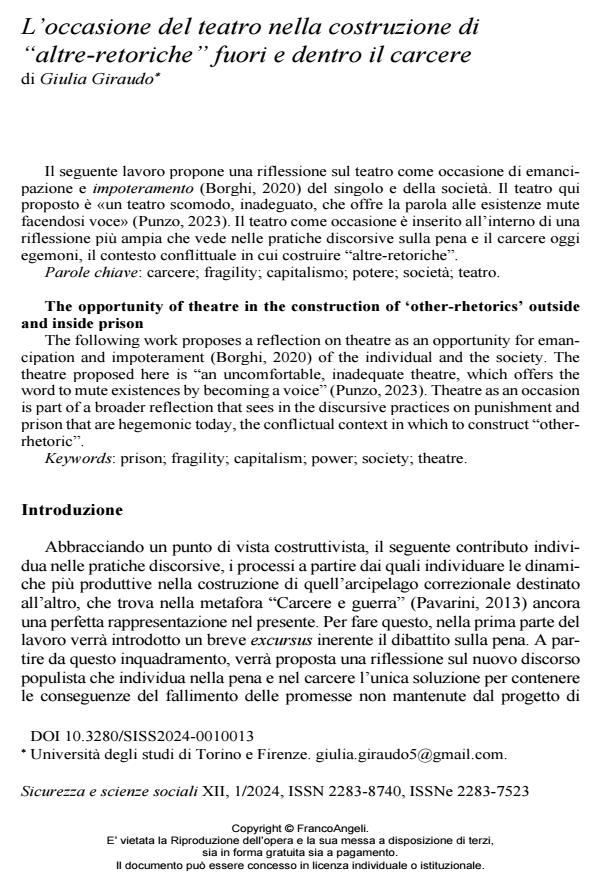The opportunity of theatre in the construction of ‘other-rhetorics’ outside and inside prison
Journal title SICUREZZA E SCIENZE SOCIALI
Author/s Giulia Giraudo
Publishing Year 2024 Issue 2024/1
Language Italian Pages 10 P. 174-183 File size 175 KB
DOI 10.3280/SISS2024-001013
DOI is like a bar code for intellectual property: to have more infomation
click here
Below, you can see the article first page
If you want to buy this article in PDF format, you can do it, following the instructions to buy download credits

FrancoAngeli is member of Publishers International Linking Association, Inc (PILA), a not-for-profit association which run the CrossRef service enabling links to and from online scholarly content.
The following work proposes a reflection on theatre as an opportunity for emancipation and impoterament (Borghi, 2020) of the individual and the society. The theatre proposed here is “an uncomfortable, inadequate theatre, which offers the word to mute existences by becoming a voice” (Punzo, 2023). Theatre as an occasion is part of a broader reflection that sees in the discursive practices on pun-ishment and prison that are hegemonic today, the conflictual context in which to construct “other-rhetoric”.
Keywords: prison; fragility; capitalism; power; society; theatre.
Giulia Giraudo, L’occasione del teatro nella costruzione di “altre-retoriche” fuori e dentro il carcere in "SICUREZZA E SCIENZE SOCIALI" 1/2024, pp 174-183, DOI: 10.3280/SISS2024-001013